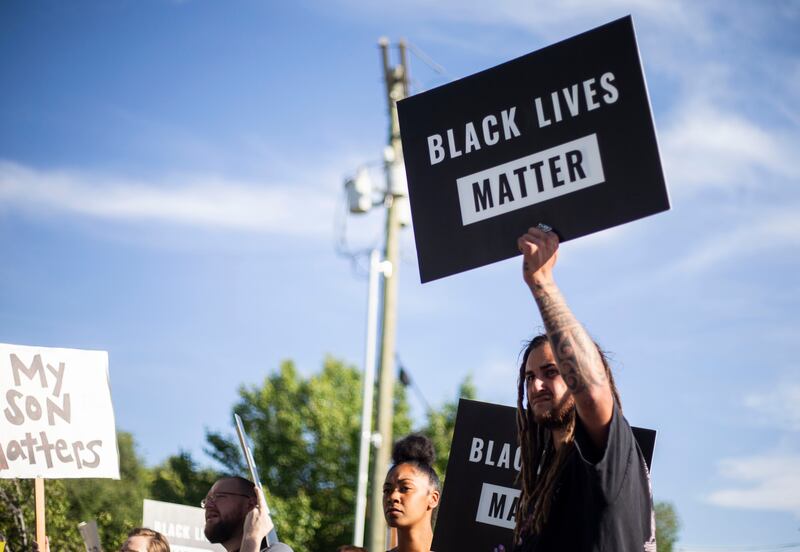SALT LAKE CITY — It was 50 years ago when the world’s most famous rock group, The Beatles, introduced the world to “Let it Be,” the single and album that rose to No. 1 on the charts, became iconic for its author Paul McCartney, and capped a decade of influence by the group.
It’s a song that remains culturally significant, as McCartney himself expressed to TV talk show host James Corden: “That’s one of the strange things. We expected it to last 10 years, but it keeps going on and on and on, and it keeps being relevant,” he said.
“When I find myself in times of trouble; Mother Mary comes to me; Speaking words of wisdom; Let it be.”
It caught the attention of “Sesame Street” in a video parody titled “Letter ‘B’” as performed by the Beetles (B-E-E-T-L-E-S). It was a catchy way to tell its young viewers the importance of the letter B, teaching the alphabet and values which remain part of the show’s legacy. The episode actually brought a short-lived lawsuit, but that’s another story.
The letter “B” and the intersection with “Let it Be” both became relevant this week as the nation is in a time of trouble. The pandemic continues to claim victims. Racism continues to claim victims. Amid all the discussion, the question remains how do we best move forward?
Inside the newsroom this week the discussions turned to the importance of capitalizing the letter “B” in the word Black when it represents African Americans and others. Academics and those engaged in language and culture have been debating this for decades. Newspaper style guides, which build consistency, are dynamic and constantly changing. And media is trying to determine if Black as a cultural designation should be capitalized. And if you do, what becomes of the word white?
Kwame Anthony Appiah, a professor of philosophy and law at New York University, wrote a compelling piece in The Atlantic last week headlined “The case for capitalizing the B in Black.” It details varying points of view stretching back to the 1920s. Included in his piece is the following:
“A good reason to capitalize the racial designation ‘black,’ then, is precisely that black, in this sense, is not a natural category but a social one — a collective identity — with a particular history. (‘Race is psychology, not biology’ is a formulation Du Bois once offered.) What’s more, the very label ‘black’ plays a role in generating that identity.”
The Deseret News discussion did not focus on victimhood or collective guilt. It was driven by respect for the Black community, the ability to correctly communicate the story and bring consistency across journalism platforms where it can be accomplished.
USA Today and other Gannett news outlets began capitalizing the letter “B” in Black last week. The Seattle Times began capitalizing it last year. And The Washington Post reports that “the Los Angeles Times, NBC News, MSNBC, BuzzFeed and the McClatchy newspaper chain have also moved to capitalize the word.”
The Washington Post wrote its own piece on the issue last week under the headline, “Why hundreds of American newsrooms have started capitalizing the ‘b’ in black.” Its reporting revealed:
“Publishers say they were inspired to make the change after hearing from readers, employees and community leaders, and that it is intended to better reflect the large swath of the population descended from the African diaspora as well as grant the word the same emphasis as other ethnic and racial descriptors.”
Will it make a difference?
Boyd Matheson, opinion editor for the Deseret News, reached out to former Utah Congresswoman Mia Love Saturday to get her opinion. Here’s how Wikipedia identifies Love: “A Haitian American, Love was the first black female Republican elected to Congress.
When asked about the debate over capital “B” and lowercase “b” Love responded:
“We have much bigger problems than capitalization. When a prejudiced police officer is unnecessarily putting you in handcuffs you aren’t worried about the AP Style Guide. When your family is trapped in poverty by big government social programs you don’t have time to consult a ‘politically correct’ spell-checker. When you are being treated like a liability to be managed instead of a person with unlimited human potential you aren’t concerned about upper and lower case — you just want a fair chance to reach the middle class.”
She concluded: “The capitalization question is the wrong question which leads to the wrong conversation. It is time to stop engaging in old conversations; we must, instead, focus on and drive new solutions.”
The Associated Press updated its style guide Friday and member organizations, of which the Deseret News is one, will capitalize the B in Black. It’s where our editors were headed out of respect for the community. Perhaps more importantly, this week’s conversation inside the newsroom will use former Rep. Love’s comments as a challenge to have the right conversations and ask the right questions toward solutions to racism.
“The best questions are how do we remove the wedges or the barriers to a level playing field?” said Matheson. “It’s about opportunity and upward mobility. It’s about acknowledging the past, correcting current challenges and charting a path forward. Simply shouting at the divide isn’t enough, “ he said.
“Sesame Street” tried to teach us a way out of troubled times by teaching literacy in the simplest way possible: “Today’s letter is the letter ‘B’” it would proclaim.
Would that we all could have learned some of these lessons on race back in our childhood “Sesame Street” days as easily as we learned the alphabet.


